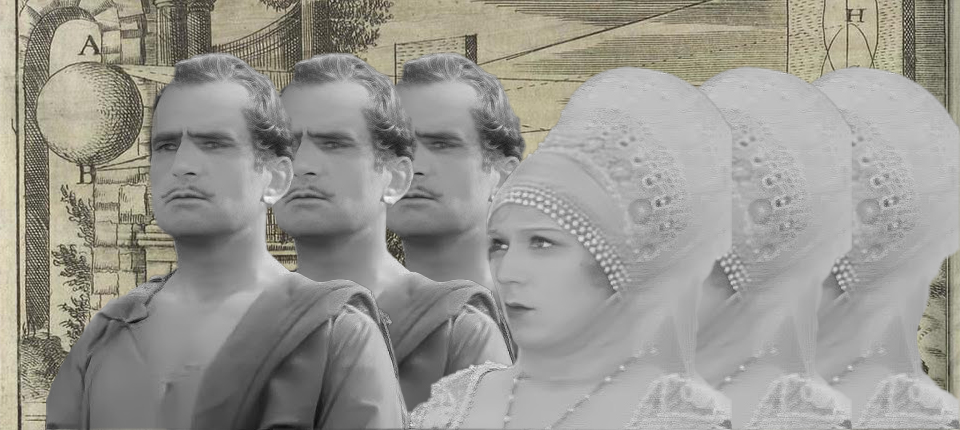Was Goethe a murderer? This may not be a tactful question to pose about one of the greatest writers of all time, especially in a newspaper written by writers and about writers. But it is a question that irresistibly suggests itself for readers of A.N. Wilson’s brilliant, gripping and provocative new biography.
The book’s title is already suggestive of the subject’s guilt. Goethe’s Faust seduces, impregnates and abandons Gretchen, who as a consequence kills her baby and is condemned to death. He kills her brother and is complicit in the drugging of her mother, who also dies. As Wilson says, “the disturbing thing from the biographical point of view is that, while Faust is clearly not Goethe, nor even a version of Goethe, he is the creation of Goethe and it is difficult to know to what extent we are meant to sympathise with Faust.” After all, “he gets off scot-free”.
Goethe based the Gretchen story, which he wove into his earliest version of the legend, the Urfaust, on the notorious 1771–2 case of Susanna Margarethe Brandt, a girl executed for infanticide in his native Frankfurt. According to another recent biographer, Rüdiger Safranski, Goethe was so dismayed by the mismatch of crime and punishment in the case that he renounced his study of the law, and so discovered his literary vocation. As Wilson says, in Faust Part Two – completed some sixty years later – Gretchen is “more or less canonised” in the closing scenes, when Faust is redeemed by das Ewig-Weibliche.
So was Goethe on the side of such fallen angels? Unfortunately not. In 1783 he was involved in another cause célèbre, that of Johanna Catharina Höhn. By now living in Weimar and the most famous writer in Germany, Goethe was a member of the three-man privy council that was asked by Duke Carl August to act as a court of appeal for this unmarried servant, aged twenty-four, who had killed her baby in desperate circumstances. Wilson, following a learned article by his namesake W. Daniel Wilson, explains that enlightened opinion had shifted against the death penalty for infanticide in such cases. Even the duke preferred life imprisonment. Goethe, the dominant figure on the council, could have prevailed on his colleagues to commute the death sentence. Instead they confirmed it: Höhn was beheaded by the sword-wielding public executioner.
Wilson admits that his hero’s “capacity for detachment”, here and elsewhere, was “disturbing”. Unlike other scholars who gloss over this episode or make excuses for it, he devotes several pages to the story. Even he, however, does not call Goethe’s treatment of Höhn by its proper name: judicial murder.
So, should Wilson’s biography be renamed Goethe: His Mephistophelian life? Not quite, even if he begins with an unflattering portrait of the grand old man, losing his temper with a deputation of worthies. They had come to inform him that Faust would finally receive its premiere in Weimar, some half a century after he had begun writing it, to mark Goethe’s eightieth birthday in 1829. “Oh, so it’s been decided, has it?” Goethe expostulated. “Does anyone think that if I had wanted, I might have been able to put on a production of Faust myself? Decided, eh? It’s been decided, without so much as asking me?”
It is an apposite opening scene for a book that somehow contrives both to demystify Goethe and to create a new mythology about the meaning of his life for our times. This is a Goethe who is a “functioning alcoholic”, subject to violent mood swings; an “undoubted” bisexual with a penchant for adolescent girls; a seer who in his scientific and environmental insights is centuries ahead of his time, yet also a reactionary who hankers after the Holy Roman Empire.
Wilson’s Goethe is anything but the monumental figure of a century ago, whom Sigmund Freud revered as the pioneer of psychoanalysis and Thomas Mann saw as “the German miracle”. It is nevertheless clear that this biographer is every bit as enamoured of his subject as was Thomas Carlyle, who enjoined his readers: “Close thy Byron; open thy Goethe.” Wilson makes no claim to original scholarship, and repeatedly acknowledges his debt to Goethe: The poet and the age, the incomparable but still unfinished symphony of Nicholas Boyle.
In writing this book Wilson had one overriding purpose: to persuade the English-speaking world to read Faust. He wants us to be able to do so in the full knowledge of how and why its completion took Goethe from his twenties until his eighties. He echoes Oswald Spengler’s view that western culture is “Faustian”: no other work of literature compares with Faust in evoking the power and peril of modernity. He believes that “ours, the post-postmodern generation, is the first which is in a position, fully, to receive what [Goethe] has to say”. Having repudiated God and Mammon, gender and nation, good and evil, the zeitgeist is – for Wilson – Goethean.
The author is irresistibly drawn to Goethe’s esoteric syncretism, which combines elements of pagan, oriental and Christian imagery. At the end of Part Two the soul of Faust is saved by grace, welcomed into paradise by a heavenly host while Mephistopheles is otherwise engaged, lusting after the angelic buttocks. This improbable denouement, generally reckoned an artistic failure, arouses the biographer’s intimations of immortality: “The plot of Faust makes no sense if you cannot conceive, even for dramatic purposes only, that there is a life beyond the grave”. Wilson is in no doubt that Goethe, at any rate at the end of his life, “shared with Plotinus, with Plato, the sense that human beings are immortal souls”.
Goethe, like his creature Faust, was not content with one soul: zwei Seelen wohnen, ach! in meiner Brust. Wilson is at pains to give Goethe’s scientific achievements equal weight with his literary glory. From his theory of colour, with which he sought to refute Newton, to his anticipation of Darwinian evolution in his anatomical research into the intermaxillary bone and his ecological insights in The Metamorphosis of Plants, he was ahead of his time and anything but an amateur. The octogenarian’s excitement in the summer of 1830 at the “events in Paris” had nothing to do with the July revolution, but centred rather on the dispute between the biologists Cuvier and Saint-Hilaire. If his art collection was vast, his scientific one was larger.
Wilson argues that Goethe’s holistic scientism makes him our contemporary, but he cannot disguise the fact that this “perfected human being” was also a colossal egotist. Only the tenderest sensibility could have produced the most sublime love poetry in German; yet most of those to whom he became close were scarred by the encounter. All of his creations – Werther, Götz, Egmont, Tasso, above all Faust – are destructive or self-destructive emanations of his own poetic genius. He took what he needed from those who were dear to him: from Friedrich Schiller a deeper grasp of the theatre; from Friedrich Jacobi, his lover (according to Wilson), the daring leap into unbelief; from Marianne von Willemer, his collaborator on the West-östlicher Divan, a passion for Persian poetry (even though he passed off her lyrics as his own). An interlocutor once ventured to suggest that by obeying the Kantian categorical imperative one might aspire to moral perfection. Goethe’s reply was crushing: “Such a human portrayal as you imagine consists of nothing but light without shadows and leaves us cold. There is such a thing as das Dämonische.”
Wilson’s book is not designed to recapitulate one of the most fully documented lives in recorded history, but to confront the reader with the greatness of the man, to evoke the daemonic impression he made on his milieu. In bringing the marmoreal elder statesman of European literature to life, he succeeds magnificently. But the Goethe who emerges from these pages is a callous colossus, pitiless in the pursuit of his Olympian destiny. Even Christiane Vulpius, the boozy, slatternly wife who was perhaps the only human being with whom he was ever entirely at ease, would address him as Herr Geheimrat (“Mr Privy Councillor”) to her dying day.
Goethe never stopped “editing” his life, Wilson writes, and the attempt to do so has continued posthumously. Yet there was always something uncanny about the German cult of “the great man”. Henry Crabb Robinson glimpsed it after dining with him: “When I saw Göthe smiling (in full) I thought the expression of his Countenance singularly amiable – But when I saw a profile smile; I had an obscure Sentiment as if there was a something in it that ought not to be.” A. N, Wilson, who like Crabb Robinson idolises Goethe, has rediscovered that something. Not only was he a hanging judge, but he could be “a wild man, obscene and out of control, foul-mouthed, coarse and alcohol-fuelled”. Goethe is a genius, in other words, for our debased times.
Daniel Johnson is editor of the online platform TheArticle and the author of White King and Red Queen: How the Cold War was fought on the chessboard, 2007
The post A hanging judge appeared first on TLS.

 By Times Literary Supplement | Created at 2024-10-29 21:41:39 | Updated at 2024-10-30 09:21:28
6 days ago
By Times Literary Supplement | Created at 2024-10-29 21:41:39 | Updated at 2024-10-30 09:21:28
6 days ago



